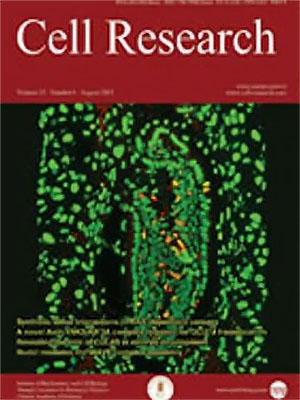Volume 14 Issue 6, December 2004: 467-472
ORIGINAL ARTICLES
Effect of amyloid peptides on serum withdrawal-induced cell differentiation and cell viability
Yi Peng WANG*, Ze Fen WANG*, Ying Chun ZHANG, Qing TIAN, Jian Zhi WANG**
Department of Pathophysiology, Tongji Medical College, Huazhong University of Science and Technology, Wuhan, 430030, China
Correspondence: Jian Zhi Wang(wangjz@mails.tjmu.edu.cn )
Abnormal deposition of amyloid-β(Aβ) peptides and formation
of neuritic plaques are recognized as pathological processes in Alzheimer
disease (AD) brain. By using amyloid precursor protein (APP) transfected
cells, this study aims to investigate the effect of overproduction of
Aβ on cell differentiation and cell viability. It was shown that after
serum withdrawal, untransfected cell (N2a/Wt) and vector transfected cells
(N2a/vector) extended long and branched cell processes, whereas no neurites
was induced in wild type APP (N2a/APP695) and Swedish mutant APP (N2a/APPswe)
transfected N2a cells. After differentiation by serum withdrawal, the
localization of APP/Aβ and neurofilament was extended to neurites, whereas
those of APP-transfected cells were still restricted within the cell body.
Levels of both APP and Aβ were significantly higher in N2a/APP695 and
N2a/APPswe than in N2a/Wt, as determined by Western blot and Sandwich
ELISA, respectively. To further investigate the effect of Aβ on the inhibition
of cell differentiation, we added exogenously the similar level or about
10-times of the Aβ level produced by N2a/APP695 and N2a/APPswe to the
culture medium and co-cultured with N2a/Wt for 12 h, and we found that
the inhibition of serum withdrawal-induced differentiation observed in
N2a/APP695 and N2a/APPswe could not be reproduced by exogenous administration
of Aβ into N2a/Wt. We also observed that neither endogenous production
nor exogenous addition of Aβ
1-40 or Aβ
1-42, even
to hundreds fold of the physiological concentration, affected obviously
the cell viability. These results suggest that the overproduction of Aβ
could not arrest cell differentiation induced by serum deprivation and
that, at least to a certain degree and in a limited time period, is not
toxic to cell viability.
FULL TEXT | PDF
Browse 2275


